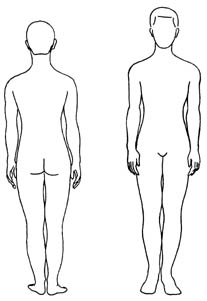গহৰিগা উঠ্
গা (Assamese) [ Roman: ga]
du: গা-পা
 English: body, physique,
English: body, physique,
Assamese: অংগক, অপঘণ, অপঘন, অপৰা-প্ৰকৃতি, অৱয়ব, ইন্দ্ৰিয়াতন, কলেৱৰ, কায়, কায়া, গা, গা-পা, গাত্ৰ, গাৱ, জীৱমন্দিৰ, তন, তনু, তনুৰুচি, দেহ, দেহপিঞ্জৰ, দেহবল্লব, দেহভৃত, দেহভৃৎ, দেহা, প্ৰাণাধাৰ, বপু, বিপোষ, ভোগায়তন, শৰীলsfx , শৰীৰ,
Bodo: देहा, मोदोम, सोलेर,
Mising: agi, amir,
Khasi: ka met,
Meeteilon: hakchang,
Karbi: jonpan,
Kok-Borok: sak,
Nagamese: ga, gao, gau, sorir,
Dimasa: basao, bumaang,
Hindi: काया,
Bangla: কায়া, গা, তনু, দেহ, শরীর,
Nepali: तन,
Deori: কায়া, চ, দেহা, হৰিল
b. Adverb: physically, কায়িকভাৱে, গায়ে-গাৰিয়ে, দৈহিকভাৱে, শাৰীৰিকভাৱে...
English: sing,
Assamese: গা, গীত পৰিৱেশন কৰ্,
Bodo: खन, मेथाइ खन, मेथाइ रोजाब,
Khasi: rwai,
Garo: mikoa,
Bishnupriya Manipuri: এলা দেনা,
Karbi: kelun,
Kok-Borok: rwchab,
Nagamese: ga, gawa,
Dimasa: rajab,
Tiwa: roja
Contributed by: Biraj Kumar Kakati on 2009-07-16
English: chant,
Assamese: গা, ঘোষ্, ফুকা, মন্ত্ৰ ফুকা, মন্ত্ৰ মাত্,
Bodo: देंखो होना फरायनाय,
Khasi: rwai,
Garo: ajia ba doroa, mangtata
Contributed by: Partha P Sarmah on 2011-10-04
গা (Bangla)
Contributed by: Sushanta Kar on 2016-06-06
 English: body, physique,
English: body, physique,
Assamese: অংগক, অপঘণ, অপঘন, অপৰা-প্ৰকৃতি, অৱয়ব, ইন্দ্ৰিয়াতন, কলেৱৰ, কায়, কায়া, গা, গা-পা, গাত্ৰ, গাৱ, জীৱমন্দিৰ, তন, তনু, তনুৰুচি, দেহ, দেহপিঞ্জৰ, দেহবল্লব, দেহভৃত, দেহভৃৎ, দেহা, প্ৰাণাধাৰ, বপু, বিপোষ, ভোগায়তন, শৰীলsfx , শৰীৰ,
Bodo: देहा, मोदोम, सोलेर,
Mising: agi, amir,
Khasi: ka met,
Meeteilon: hakchang,
Karbi: jonpan,
Kok-Borok: sak,
Nagamese: ga, gao, gau, sorir,
Dimasa: basao, bumaang,
Hindi: काया,
Bangla: কায়া, গা, তনু, দেহ, শরীর,
Nepali: तन,
Deori: কায়া, চ, দেহা, হৰিল
b. Adverb: physically, কায়িকভাৱে, গায়ে-গাৰিয়ে, দৈহিকভাৱে, শাৰীৰিকভাৱে...
গা (Assamese) [ Roman: ga]
du: গা-পা
1. (Material Noun-Neuter) the physical structure and material substance of an animal or plant, living or dead. জীৱিত বা মৃত, প্ৰাণী বা উদ্ভিদৰ শাৰীৰিক গঠন বা ভৌতিক ৰূপ।

Assamese: অংগক, অপঘণ, অপঘন, অপৰা-প্ৰকৃতি, অৱয়ব, ইন্দ্ৰিয়াতন, কলেৱৰ, কায়, কায়া, গা, গা-পা, গাত্ৰ, গাৱ, জীৱমন্দিৰ, তন, তনু, তনুৰুচি, দেহ, দেহপিঞ্জৰ, দেহবল্লব, দেহভৃত, দেহভৃৎ, দেহা, প্ৰাণাধাৰ, বপু, বিপোষ, ভোগায়তন, শৰীলsfx , শৰীৰ,
Bodo: देहा, मोदोम, सोलेर,
Mising: agi, amir,
Khasi: ka met,
Meeteilon: hakchang,
Karbi: jonpan,
Kok-Borok: sak,
Nagamese: ga, gao, gau, sorir,
Dimasa: basao, bumaang,
Hindi: काया,
Bangla: কায়া, গা, তনু, দেহ, শরীর,
Nepali: तन,
Deori: কায়া, চ, দেহা, হৰিল
Different POS:
a. Proper Adj.: bodily, carnal, corporal, part, physical...b. Adverb: physically, কায়িকভাৱে, গায়ে-গাৰিয়ে, দৈহিকভাৱে, শাৰীৰিকভাৱে...
2. (Verb-Intran.) To utter a series of words or sounds in musical tones এলানি শব্দ বা ধ্বনি সুৰ লগাই উচ্চাৰণ কৰা
Assamese: গা, গীত পৰিৱেশন কৰ্,
Bodo: खन, मेथाइ खन, मेथाइ रोजाब,
Khasi: rwai,
Garo: mikoa,
Bishnupriya Manipuri: এলা দেনা,
Karbi: kelun,
Kok-Borok: rwchab,
Nagamese: ga, gawa,
Dimasa: rajab,
Tiwa: roja
Example Sentences:
1. তই গান এটা গা।Different POS:
a. Abstract Noun: song, গাথা, গান, গীত, গীতি...Related Idea:
b. Common Noun-Masculine: singer, vocalist, কণ্ঠশিল্পী, গাওঁতা, গানুৱা...Contributed by: Biraj Kumar Kakati on 2009-07-16
3. (Verb-Intran.) To sing in a rhythmic manner as in the case of prayer. লোকক শুনাই সুৰ লগাই পুথি, প্ৰাৰ্থনা আদি পাঠ কৰ্ ৷
Assamese: গা, ঘোষ্, ফুকা, মন্ত্ৰ ফুকা, মন্ত্ৰ মাত্,
Bodo: देंखो होना फरायनाय,
Khasi: rwai,
Garo: ajia ba doroa, mangtata
Different POS:
a. Abstract Noun: chanting, মন্ত্ৰ...Contributed by: Partha P Sarmah on 2011-10-04
4. Music(Abstract Noun) the third sound of the seven primary sounds of Indian (classical)music. sa, re, ga, ma, pa, dha, ni ভাৰতীয় (শাস্ত্ৰীয়)সংগীতৰ সুৰ-সপ্তকৰ (মূল সাতটা স্বৰ)তৃতীয়টো৷
গা (Bangla)
Contributed by: Sushanta Kar on 2016-06-06
5. (Material Noun-Neuter) the physical structure and material substance of an animal or plant, living or dead. জীৱিত বা মৃত, প্ৰাণী বা উদ্ভিদৰ শাৰীৰিক গঠন বা ভৌতিক ৰূপ।

Assamese: অংগক, অপঘণ, অপঘন, অপৰা-প্ৰকৃতি, অৱয়ব, ইন্দ্ৰিয়াতন, কলেৱৰ, কায়, কায়া, গা, গা-পা, গাত্ৰ, গাৱ, জীৱমন্দিৰ, তন, তনু, তনুৰুচি, দেহ, দেহপিঞ্জৰ, দেহবল্লব, দেহভৃত, দেহভৃৎ, দেহা, প্ৰাণাধাৰ, বপু, বিপোষ, ভোগায়তন, শৰীলsfx , শৰীৰ,
Bodo: देहा, मोदोम, सोलेर,
Mising: agi, amir,
Khasi: ka met,
Meeteilon: hakchang,
Karbi: jonpan,
Kok-Borok: sak,
Nagamese: ga, gao, gau, sorir,
Dimasa: basao, bumaang,
Hindi: काया,
Bangla: কায়া, গা, তনু, দেহ, শরীর,
Nepali: तन,
Deori: কায়া, চ, দেহা, হৰিল
Different POS:
a. Proper Adj.: bodily, carnal, corporal, part, physical...b. Adverb: physically, কায়িকভাৱে, গায়ে-গাৰিয়ে, দৈহিকভাৱে, শাৰীৰিকভাৱে...
